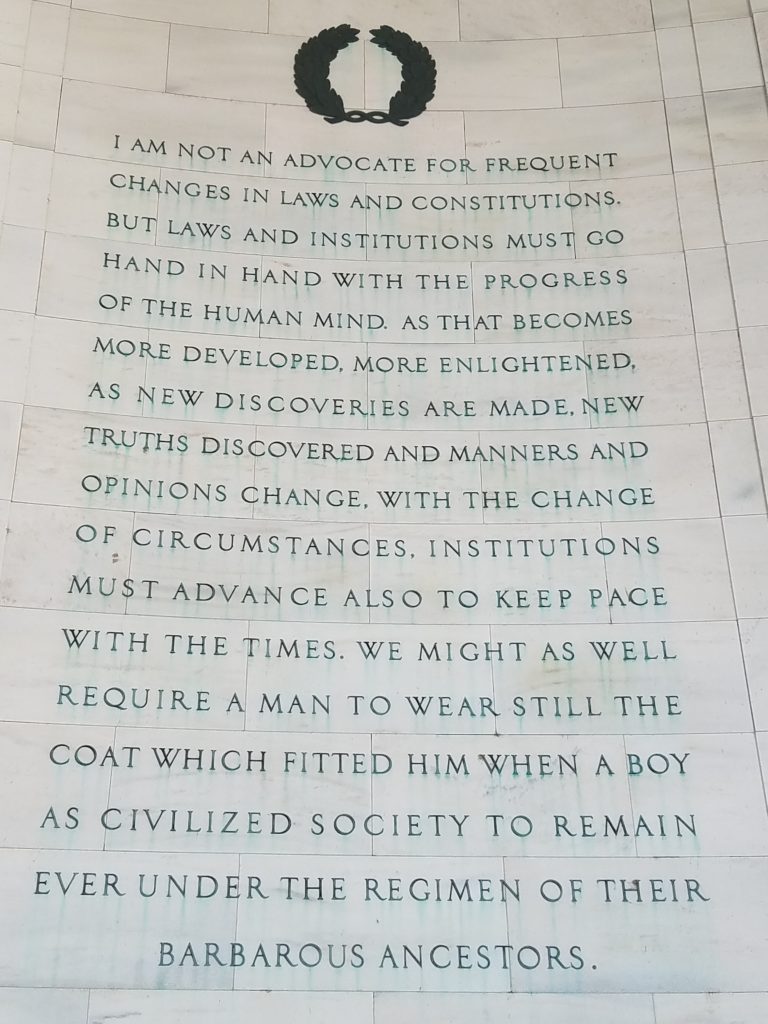By Dan Amos
About the time we started the series on James at Elim, Fran and I visited Washington, DC. One evening we visited the Jefferson Memorial and I was struck by the inscription chosen for the southeast portico wall. I could not help comparing those words to those Pastor Martin led us through from the first chapter of James.
The memorial’s quote was from a letter Jefferson wrote extolling man’s growing wisdom, but instead, I see it as an illustration of our arrogance.
It is this thinking that leads to calling good things evil and evil things good. It leads to questioning who God is and what role He plays in our lives. It leads to changing the teachings of Scripture and replacing the words of life with pretty but empty words that suit our modern sensibilities. Ultimately, it leads away from salvation and instead to death.
While Jefferson advocated that the things our ancestors believed become outdated and practices need to change with the times, James tells us the very opposite about God in 1:16-18.
Don’t be deceived, my dear brothers and sisters. Every good and perfect gift is from above, coming down from the Father of the heavenly lights, who does not change like shifting shadows. He chose to give us birth through the word of truth, that we might be a kind of first-fruits of all he created.
James is using words that inflame contemporary wisdom, such as “Father” and “does not change” and “truth.” In his own life, Jefferson did not want to accept the deity of Christ and the teachings of the Apostles. We reject the wisdom of man and proclaim the following in our statement of faith:
We believe that God has spoken in the Scriptures, both Old and New Testaments, through the words of human authors. As the verbally inspired Word of God, the Bible is without error in the original writings, the complete revelation of His will for salvation, and the ultimate authority by which every realm of human knowledge and endeavor should be judged. Therefore, it is to be believed in all that it teaches, obeyed in all that it requires, and trusted in all that it promises.
That the Word of God is under attack is nothing new. It has been happening since the serpent spoke to Eve (and Adam passively listened). Great councils used to be called together to debate heretical teachings. Now the attacks are less dramatic, but they are everywhere, coming from every media, impossible to avoid. But the truth remains, and our access to it is as unprecedented as the lie is prevalent. All we have to do is open it.
Views – 178

 Follow
Follow
